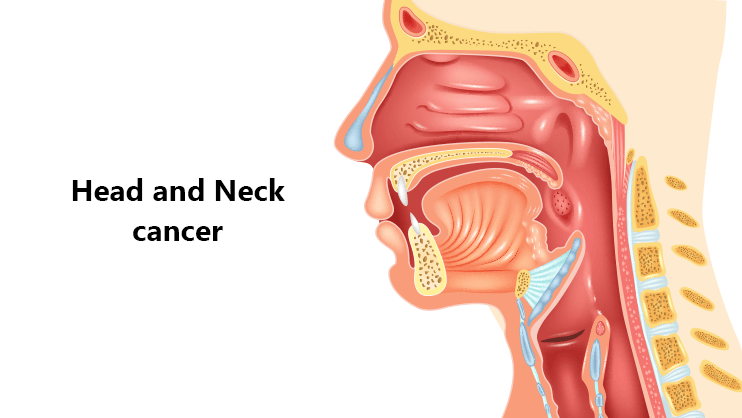Refers to a few kinds of cancer that influence the head and neck region of the body. Head and neck cancer is more normal in men and in individuals over age 50. These cancers are entirely treatable whenever gotten early and are effectively preventable. The most well-known reasons for head and neck cancer are tobacco and alcohol use. Human papillomavirus (HPV) is likewise a significant risk factor for a few head and neck cancers.
What are the side effects of head and neck cancer?
Head and neck cancer can be difficult to analyze, on the grounds that symptoms are frequently gentle and can copy less difficult circumstances like a cold or sore throat.
- A mouth or tongue sore that does not heal.
- A white or red fix on the gums, tongue, or coating of the mouth.
- A persistent sore throat.
- Hoarseness.
- Enlarging in the jaw, neck or side of the face. This might make false teeth fit ineffectively.
- Regular sinus infections that don't answer anti-infection agents.
- Neck pain that will not disappear.
- Continuous cerebral pains.
- Pain the upper teeth.
- Bleeding through the nose or in the mouth, or blood in the saliva.
- Inconvenience gulping.
- Tenacious ear infections.
- Inconvenience breathing or talking.
Diagnosis Of Head and Neck cancer
- Physical examination/blood and urine tests
- Endoscopy
- Biopsy
- Computed tomography(CT)
- Magnetic resonance imaging (MRI)
- Bone scan
Treatment for Head and Neck Cancer
Head and neck cancer treatment can incorporate a surgery, radiation treatment, chemotherapy, targeted treatment, immunotherapy, or a mix of therapies. The therapy plan for a singular patient relies upon various elements, including the area of the cancer, the phase of the disease, and the individual's age and general health.

